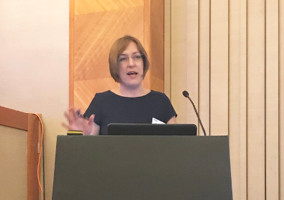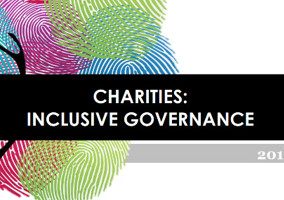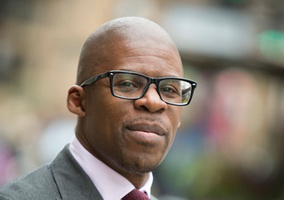Liz Warner, who joined Comic Relief as its chief executive in 2016, said she was shocked at the lack of diversity in the charity sector, especially as she had come from the media sector which is renowned for its lack of diversity.
She was speaking yesterday at an event organised by the think tank NPC about embracing diversity.
“I am relatively new to the sector," she said. “I just want to say that I was shocked when I joined. I come from media and I found the media more advanced and more inclusive. I was shocked by where I was then, and then when I came to the sector I found it incredibly, as you say, male, pale, stale.
“I feel that there is a long way to go. I was a diversity champion in the media sector. I worked across organisations and we agreed that we need to have action, it needs be behavioural, people need to start to change, and we all need to join up.
“In the media sector we had cross-organisational, across all broadcasters, a group where we championed, we celebrated, and we tried to move things forwards. It has got a long way to go.”
She picked up on a point earlier in the session about how someone needs to convene a working group on the lack of diversity and equality in the sector.
She said: “I would like to say that I will convene the meeting. We said that someone needs to host it, I am offering to host it. Let’s start.”
Strength in being different
The seminar was arranged to coincide with the launch of NPC's report Walking the talk on diversity: What is holding the charity sector back from putting words into action?
The report was produced by Amina Memon, who sat on the panel alongside Samuel Kasumu, managing director of Inclusive Boards, and Asif Afridi, deputy chief executive of human rights charity Brap.
Speaking at the event, Kasumu said that “difference is our strength”, adding: “I’m very comfortable and being different as it means I am bringing something different to the table. Being different is good, it adds value.”
Inclusive Boards released a report in April of this year which said that nearly 80 per cent of charity senior leadership teams are all white.
Answering the question of whether the sector will ever embrace diversity, Kasumu said: “The evidence suggests that it won’t, if – big if – certain actions are not taken to accelerate the pace of change.”
He said that this change involves the need for a clear action plan and lines of accountability, as well as leadership that is linked to that plan. It also involves being “positive about the victory you want”.
As previously done in the report from Inclusive Boards, Kasumu challenged the Charity Commission to do more.
He said: “Our challenge to the Charity Commission has been for a long time that yes you are under-resourced, but what more can you do? Why have you never convened a working-group, even if it means you have to provide some office space for a bunch of CEOs to come together every so often and to be accountable?
“We also challenge the Office for Civil Society, we don’t think they are doing enough, and we don’t think they have an excuse. We know they have a consultation they have just completed and we are looking with interest at what they are going to propose doing better in regards to tackling equality and diversity.”
Diversity and equality conflated
NPC’s report says that one thing holding back the charity sector from improving its diversity is misunderstandings around the concept of diversity, partly that there is no common understanding of the meaning of the word.
Speaking on the panel, Afridi from Brap said that the terms diversity and equality are “often conflated”.
He went on to say: “Personally speaking I like to talk about equality most of the time. One of the reasons for that is that I think diversity is really important, but it is often seen as an end in itself.
“I think if we achieve diversity, there is often an assumption that we’ve achieved equality as well. And often diversity is seen as whether a group mirrors a local population, and that is kind of as far as we get a lot of the time with diversity. If that is all we are hoping for that is kind of a conservative aim. We want more than that.”
The report’s author, Memon, said at the session that labels such as biased or racist are particularly unhelpful as that sort of label “is just going to get people to suppress their beliefs and their unconscious beliefs”.
She said we need “strong leadership if we are going to see a change” and need an “inclusive work environment”.
The report also emphasised the importance of lived experience. It said: “Work to draw on lived experience, or ‘user voice’, to influence charities’ decisions was mentioned by several people, stating that diversity in this respect could help charities better meet the need of their clients or users.”
The research is based on unstructured in-depth interviews with a sample of 24 leaders from the UK charity sector, the majority of whom were current or former chief executives and/or trustee board members. It said that interviewees were motivated to participate because of their current interest in addressing diversity in the charity sector.
Related articles












